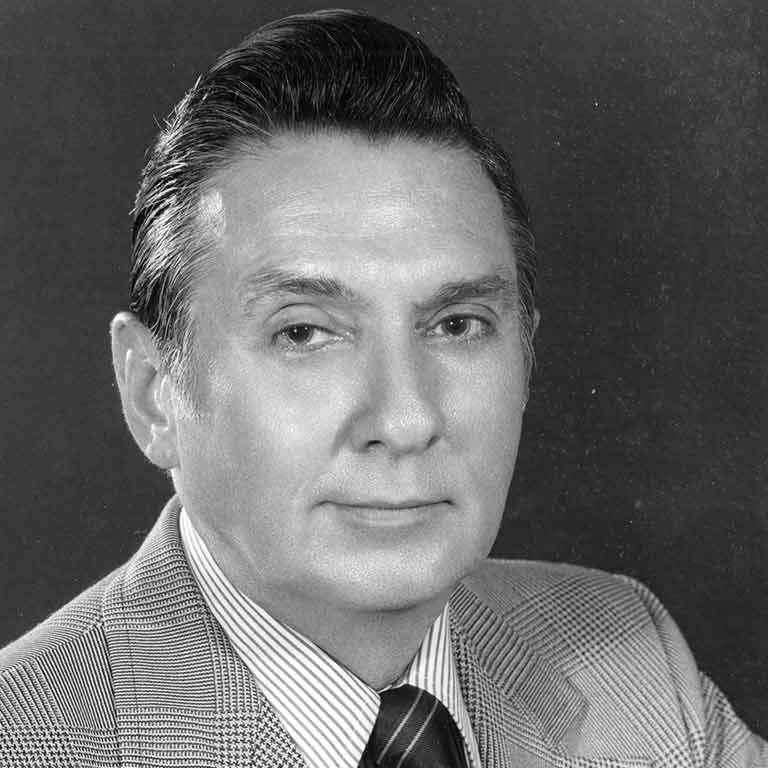The late Robert E. Thompson, who attended Indiana University on the G.I. Bill after World War II, became a top political reporter who eventually rose through the ranks to excel in newspaper management.
Thompson came to Indiana from his hometown of Los Angeles to study journalism and stayed after earning his degree in 1949. His first job was as a reporter for the Fort Wayne (Indiana) Gazette.
In 1951, Thompson was hired by the International News Service, a wire service owned by the Hearst chain, to cover agriculture from Washington, D.C. By the time the 1956 presidential elections arrived, Thompson had changed his beat to politics, an area he had always wanted to cover. He reported on the presidential campaigns of Adlai Stevenson and Dwight D. Eisenhower.
INS merged with United Press in 1958, and Thompson was one of many who were laid off. Shortly after, however, Sen. John F. Kennedy asked Thompson to be the press secretary for his re-election campaign. Thompson quickly returned to the newspaper business, however, joining the Washington, D.C., bureau of the New York Daily News in 1959. He was assigned the White House beat and would eventually report on his former boss after Kennedy was elected president.
He returned to his hometown in 1962 for a four-year stint writing for the Los Angeles Times. Thompson then was named Washington bureau chief for Hearst Newspapers. He later served as Hearst’s national news editor, then publisher of the Seattle Post-Intelligencer before returning to his position as bureau chief in Washington. He would retain this title until his retirement in 1989.
Thompson’s involvement with the Kennedy family was a distinctive part of his career. He was on the scene for the coverage of President Kennedy’s assassination and witnessed Jack Ruby’s shooting of suspect Lee Harvey Oswald. He co-authored the book Robert Kennedy: The Brother Within, a biography about the late senator.
During his time at IU, Thompson served as editor-in-chief of the Indiana Daily Student and was active in student government. He returned to IU Journalism in the early 1970s as the Ernie Pyle lecturer. His weekly column for Hearst about his experience as a political reporter continued until a month before his death in 2003.


